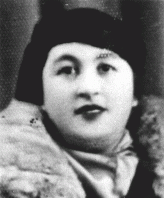You searched for: %E5%9F%BA%E9%87%91%E7%9B%98%E5%BF%AB%E9%80%9F%E6%90%AD%E5%BB%BA%E5%BC%80%E5%8F%91%E3%80%90TG%EF%BF%BD%EF%BF%BD%EF%BF%BD%EF%BF%BD%EF%BF%BD%EF%BF%BD%EF%BF%BD%EF%BF%BD%EF%BF%BD%40EK7676%E3%80%91%E5%B9%B3%E5%8F%B0%E5%8C%85%E7%BD%91%E6%90%AD%E5%BB%BA%E5%9F%BA%E9%87%91%E7%9B%98%E5%BF%AB%E9%80%9F%E6%90%AD%E5%BB%BA%E5%BC%80%E5%8F%91%E3%80%90TG%EF%BF%BD%EF%BF%BD%EF%BF%BD%EF%BF%BD%EF%BF%BD%EF%BF%BD%EF%BF%BD%EF%BF%BD%EF%BF%BD%40EK7676%E3%80%91%E5%B9%B3%E5%8F%B0%E5%8C%85%E7%BD%91%E6%90%AD%E5%BB%BA9WRwPbMxLP
<< Previous | Displaying results 121-130 of 209 for "%E5%9F%BA%E9%87%91%E7%9B%98%E5%BF%AB%E9%80%9F%E6%90%AD%E5%BB%BA%E5%BC%80%E5%8F%91%E3%80%90TG%EF%BF%BD%EF%BF%BD%EF%BF%BD%EF%BF%BD%EF%BF%BD%EF%BF%BD%EF%BF%BD%EF%BF%BD%EF%BF%BD%40EK7676%E3%80%91%E5%B9%B3%E5%8F%B0%E5%8C%85%E7%BD%91%E6%90%AD%E5%BB%BA%E5%9F%BA%E9%87%91%E7%9B%98%E5%BF%AB%E9%80%9F%E6%90%AD%E5%BB%BA%E5%BC%80%E5%8F%91%E3%80%90TG%EF%BF%BD%EF%BF%BD%EF%BF%BD%EF%BF%BD%EF%BF%BD%EF%BF%BD%EF%BF%BD%EF%BF%BD%EF%BF%BD%40EK7676%E3%80%91%E5%B9%B3%E5%8F%B0%E5%8C%85%E7%BD%91%E6%90%AD%E5%BB%BA9WRwPbMxLP" | Next >>
-
William Denson describes postwar trials of concentration camp personnel
Oral HistoryWilliam Denson graduated from the US Military Academy at West Point in 1934 and attended Harvard Law School. He returned to West Point to teach law from 1942 until 1945. In January 1945, Denson accepted the position of Judge Advocate General (JAG) in Europe and was assigned to US Third Army headquarters in Germany. He took part in more than 90 trials against Germans who had committed atrocities against downed American pilots. In August 1945, Denson became chief prosecutor for the US government at the…
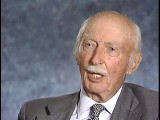
-
William Denson describes counsel provided to accused war criminals
Oral HistoryWilliam Denson graduated from the US Military Academy at West Point in 1934 and attended Harvard Law School. He returned to West Point to teach law from 1942 until 1945. In January 1945, Denson accepted the position of Judge Advocate General (JAG) in Europe and was assigned to US Third Army headquarters in Germany. He took part in more than 90 trials against Germans who had committed atrocities against downed American pilots. In August 1945, Denson became chief prosecutor for the US government at the…
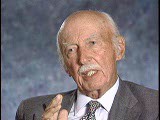
-
William Denson describes finding witnesses for the postwar trials of concentration camp personnel
Oral HistoryWilliam Denson graduated from the US Military Academy at West Point in 1934 and attended Harvard Law School. He returned to West Point to teach law from 1942 until 1945. In January 1945, Denson accepted the position of Judge Advocate General (JAG) in Europe and was assigned to US Third Army headquarters in Germany. He took part in more than 90 trials against Germans who had committed atrocities against downed American pilots. In August 1945, Denson became chief prosecutor for the US government at the…
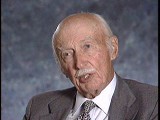
-
The Search for Perpetrators
ArticleThousands of Nazi criminals were never arrested. Learn more about the postwar efforts to bring Nazi perpetrators to justice.
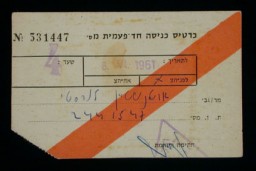
-
Melk
ArticleLearn about the establishment of and conditions in Melk, a subcamp of the Mauthausen camp system in Austria.
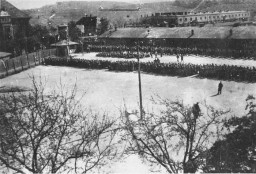
-
Westerbork
ArticleThe Westerbork transit camp, located in the German-occupied Netherlands, served as a temporary collection point for Jews in the Netherlands before deportation.
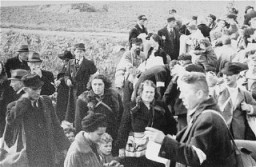
-
German air campaign in the Low Countries
FilmThe Junkers (Ju) 87, known as the "Stuka," spearheaded the Blitzkrieg ("lightning war") attacks that were decisive in the western campaign in 1940. Stuka dive-bombers closely supported German ground forces. They destroyed enemy strong points, aircraft, and airfields, and spread panic in rear areas. Although slow and easily shot down by Allied fighters, the Stukas proved devastatingly effective in the German invasions of Poland and western Europe, where Germany enjoyed superiority in the air. Stukas caused…
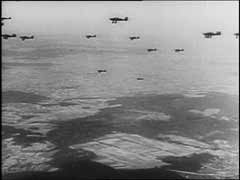
-
Stand Fast
SongErich Frost (1900–87), a musician and devout Jehovah's Witness, was active in the religious resistance to Hitler's authority. Caught smuggling pamphlets from Switzerland to Germany, he was imprisoned in the Sachsenhausen concentration camp near Berlin where he composed this song in 1942. Later deported to a labor camp at Alderney, Channel Islands, Frost survived the war and returned to Germany to serve the Watchtower Society. "Fest steht," reworked in English as "Forward, You Witnesses," is among the…
-
Chaia Gurvitz
ID CardFrom a Jewish family, Chaia lived outside Kovno, a city with a large Jewish population that was renowned for its Hebrew school system. Chaia ran a grocery store with her husband, a retired shoemaker, and their daughter Yenta. 1933-39: Chaia is expecting her daughter Feiga, Feiga's husband, Josef, and her grandson, Abraham, for dinner. Feiga works so hard all week in her beauty shop, Chaia is glad she can help out by preparing the big Sunday meal. She has baked a special cake for Abe. Chaia hopes the…
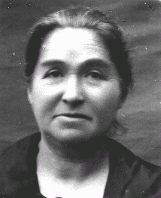
-
Feiga Malnik
ID CardRaised in a Jewish family, Feiga lived with her husband, Josef, in Kovno, a city with a large Jewish community of 38,000. Kovno was situated at the confluence of two rivers, and with its opera company, chic stores and lively nightclubs, it was often called "Little Paris." Feiga was a beautician and Josef was a barber, and together they ran a shop in downtown Kovno. 1933-39: Every day Josef and Feiga walk to their shop, which is near their house. It's hard work, being a beautician--Feiga is on her feet…
